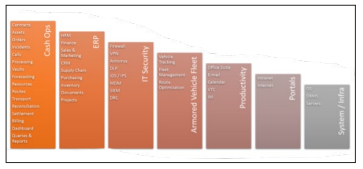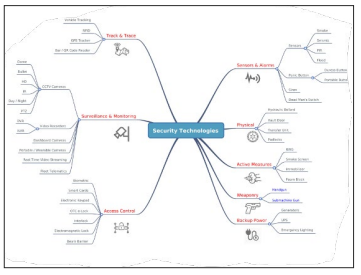



Levent Kocbiyik presented at the Cash Cycle Seminar (ICCOS) last year on behalf of the Turkish cash management company Bantas* about achieving the right mix of technology in cash handling. He argues that ‘craft’ continues to play a core role as well.
Cash Handling Services (CHS) are a combination of logistics and security services. There are three component parts – the actual task of moving cash securely carried out by cash-in-transit (CIT) companies, cash processing and the management and provision of services to ATMs, including smart safes in retail outlets. The challenge CHS companies face is bringing together technology and systems to deliver throughput efficiently and at the lowest cost.
The presentation considered technology under three headings: Information and Communication Technologies (ICT), Security and Automation.
Operations management is at the centre of all these areas, with the goal of increasing processing speeds and throughput while reducing human intervention and errors. It has to balance external drivers such as meeting regulatory and insurance requirements, as well as the risks and threats brought by criminals, along with changing market conditions and constant pricing pressures.
ICT includes the full gamut from managing portals to Enterprise Resource Planning (ERP) to all of the different communication channels available and needed. Increasingly, this includes cyber security.
Cash operations management is an area where technology is creating new opportunities to optimise and improve performance. New technology areas, the Internet of Things, artificial intelligence, big data, cloud computing, the block chain, cyber security techniques and even augmented reality, offer new ways of doing things. For example, better and more timely data, algorithms that learn and offer more appropriate solutions, lower computing costs, more secure ledgers and record keeping and new ways to deliver training and education.

Today when security meets logistics, the technology ranges from the hand-gun through to the provision of uninterrupted power supply (UPS) systems, from vaults to portable wearable cameras, from biometrics to panic buttons. The number of areas needing to be considered and the range of options available is vast.

An obvious area in which to invest is in automation, and the presentation provided indicative prices for equipment alongside how much faster each was relative to smaller machines.

Automation is changing fast in every element of CHS. Almost every step of counting, sorting, strapping, bundling, packing and accounting can include automation. Significant reductions in head count can be achieved. Autonomous robots are starting to be used in a wider range of tasks, with the benefits of less human intervention important both from a health and safety and a security basis.
Automation is not a panacea, though. It needs to be driven by factors such as both the volume throughputs required and how much they vary, can processes be standardised, what is the cost of labour, will the repair and maintenance costs of what is bought be affordable and will the unit service prices still be affordable once the investment is in place?
Technology offers solutions but it also brings risks. Whatever is put in place needs to be backed up, to have processes in place for when it temporarily ‘falls over’ and redundancy available for either when it has insufficient capacity or it fails for a prolonged period of time.
Investment in technology is not always the right answer either because of the cost/benefit analysis or because an alternative will give a better end-user experience. Not technology for technologies sake but because it is the best answer.
*Bantas is a jointly-owned subsidiary of Denzibank (owned by Emirates NDB), QNB Finansbank (owned by QNB) and TEB (part of BNP Paribas) employing 1,600 staff in Turkey providing a full range of cash management services.